People
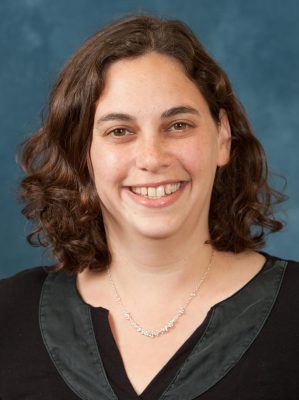
Sara Adar
Co-investigator, air pollution and health
About Sara
Sara Adar is an Associate Professor and Associate Chair of Epidemiology at the University of Michigan School of Public Health. Sara has nearly 20 years of experience researching the human health effects of environmental exposures, especially air pollution and noise. She has an active research portfolio within the United States, Asia, Europe, and South America that is supported by funding by the NIEHS, NIA, CDC, and Health Effects Institute. Sara is the Director of the PhD program, an Associate Editor at the Environmental Health Perspectives, a member of the Review Committee for the Health Effects Institute, and the former Secretary/Treasurer of the International Society for Environmental Epidemiology. When not at work, Sara enjoys hiking, puzzles, and spending time with her kids.
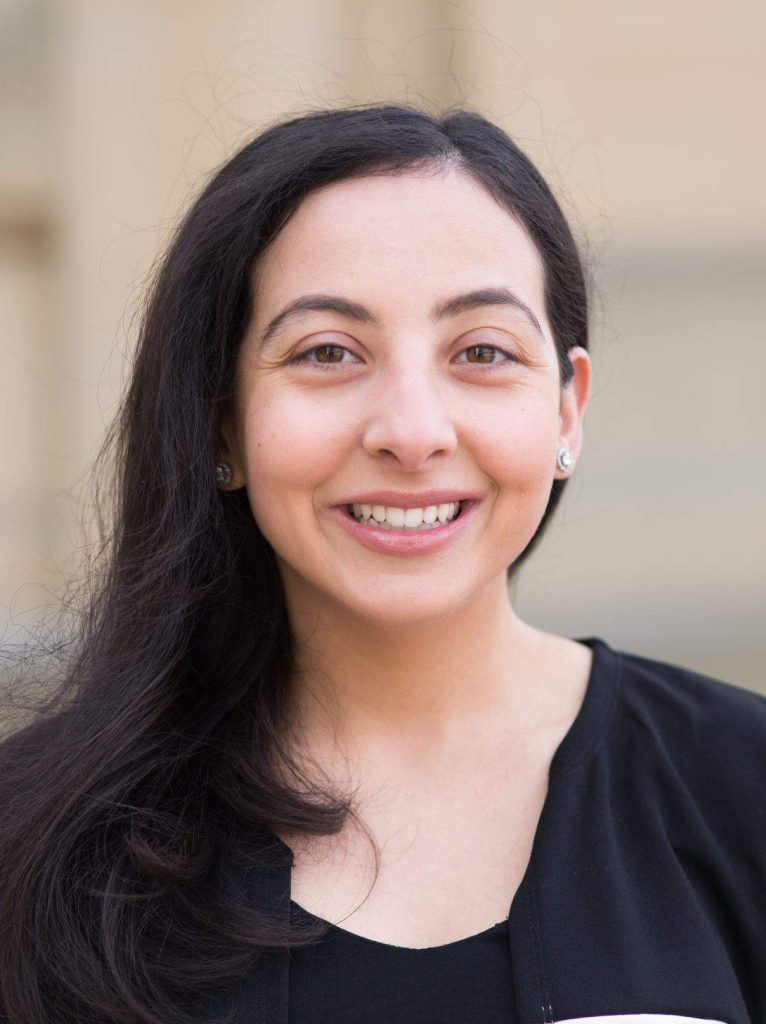
Amanda Ajrouche
Study Coordinator, Vigilance and Sleep Study
About Amanda
Amanda Ajrouche joined the Landscapes Lab as an Assistant Study Coordinator, supporting Dr. Margaret Hicken’s Vigilance and Sleep Study. Amanda holds a MSW from the University of Michigan School of Social Work, and was previously a Program Coordinator at ACCESS- the largest Arab American nonprofit in the United States. At ACCESS, she worked on shifting social and cultural norms to be more gender equitable, as well as fighting to reduce the prevalence of domestic violence and sexual assault through community collaborations. She is dedicated to movements that empower people of color, refugees and immigrants. She hopes to pursue a PhD in psychology, where she can develop research practices that can support Arab American communities. In her free time, Amanda enjoys pretending to be a foodie, reading, and consuming large amounts of coffee.
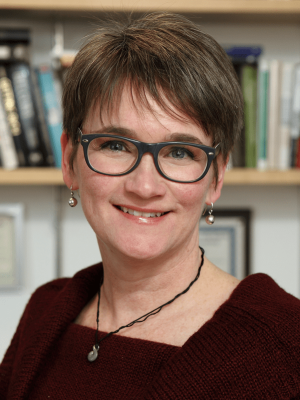
Amy Kate Bailey
Faculty Affiliate, University of Illinois Chicago, historical racial violence
About Amy
Amy Kate Bailey’s main area of research focuses on historical racist violence in the United States. This scholarship has focused on factors that predict the intensity of mob violence, the characteristics of its victims, and contemporary consequences. Her current project examines the link between communities’ past experiences with collective violence and rates of infant mortality and other adverse pregnancy outcomes today.
Amy is an Associate Professor of Sociology and Institute for Health Research and Policy fellow at the University of Illinois Chicago, and a research affiliate at the University of Washington’s Center for Studies in Demography and Ecology. She was previously on faculty at Utah State University, and completed a postdoc at Princeton University’s Office of Population Research. Prof. Bailey earned her PhD and MA in Sociology from the University of Washington. Her work has been published in the American Journal of Sociology, American Sociological Review, and Annals of the American Academy of Political and Social Sciences, among other outlets.
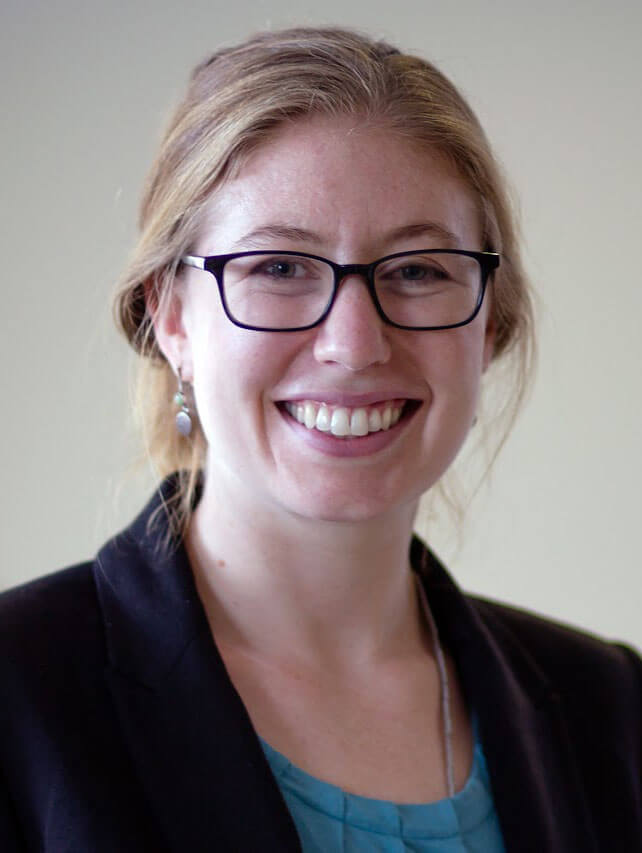
Kelly Bakulski
Co-investigator, environmental epigenentics
About Kelly
Kelly Bakulski, Ph.D. is an Assistant Professor in the Department of Epidemiology at the University of Michigan School of Public Health and the Data Management and Statistical Core Leader for the Michigan Alzheimer’s Disease Research Center. She is a molecular epidemiologist and an environmental health scientist.
Dr. Bakulski’s research team goal is to understand the environmental chemical and genetic etiologies of neurological disorders. She has particular expertise in life course heavy metals exposure testing with dementia and in analyses across multiple levels of the genome, including the epigenome and the transcriptome. Dr. Bakulski’s research incorporates population approaches and laboratory experiments to develop biomarker and cell type tools informing molecular epidemiology inferences.

Kira S. Birditt
Co-Investigator, bioinnovations and aging
About Kira
Dr. Kira Birditt is a Research Professor and Director of the Aging and Biopsychosocial Innovations Program. Dr. Birditt’s program of research focuses on negative aspects of relationships, stress, and the implications of relationships and stress for health and well-being over time (using both self-reported and biological indicators of health). She is particularly interested in understanding how relationships differentially influence health and well-being depending on the context of stress. Most of her projects involve examining individuals and dyads either over time and or within families. Results from multiple projects indicate that aspects of relationships that are beneficial or harmful are often very different when individuals are under stress.
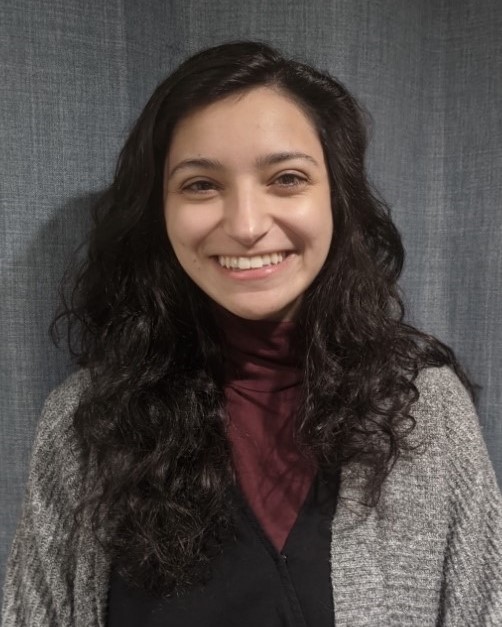
Izzy Bouklas
Graduate Student, segregation and health
About Izzy
Isabella (Izzy) is a third-year PhD student in the sociology department at Duke University. Her primary interests involve using longitudinal data and quantitative methods to investigate social determinants of health. Her current work is focused on the impacts of social and economic inequalities, such as racial residential segregation, food insecurity, and environmental exposures, on health. Prior to arriving at Duke, Izzy earned her BA in sociology and psychology with minors in philosophy and gender studies from Stony Brook University.

Tahlia Bragg
Post-Doctoral Fellow, Boston University, historical trauma and aging
About Tahlia
Dr. Tahlia Bragg (she/her pronouns in English and Spanish) is a Clinical Neuropsychology Postdoctoral Associate at Boston University Chobanian & Avedesian School of Medicine in the Chronic Traumatic Encephalopathy (CTE) Center. She completed her doctoral training in Clinical Psychology at Fielding Graduate University. Most recently, she was a Psychology Intern at The Center for Multicultural Training in Psychology (CMTP) at Boston University Chobanian & Avedisian School of Medicine & Boston Medical Center, where her clinical foci were providing behavioral and psychotherapeutic interventions in systems-based care for children and families, and older adults.
Dr. Bragg’s research interests began in her undergraduate studies and consistently emphasizes Black racial disparities and the associations between health inequities and Alzheimer’s Disease and related dementias. Her dissertation examined how childhood and adolescent stress exposure influenced the risk for accelerated cognitive aging and poorer physical and mental health outcomes in self-identifying Black people. Her postdoctoral research emphasizes identifying disparities in the setting of CTE that impact people who self-identify as Black. She is also a scholar in the 2023 Cohort of the Emerging Scholars Program on Black men’s brain health in partnership with the NFL Alumni Association, Alzheimer’s Association, and the National Institute of Aging. Currently, her projects examine associations between racial self-identification and health behaviors and barriers to health-seeking on neurocognitive and neurobehavioral dysregulation outcomes. Her current leadership roles include Secretary & Treasurer of the Cultural Neuropsychology Special Interest Group (SIG) and the Annual Program Representative of the Student Liaison Committee for the International Neuropsychological Society (INS).

Benjamin Culp
Research Assistant
About Benjamin
Ben Culp is a research assistant for Dr. Margaret Hicken’s WorkLife Study. He earned his Bachelor of Science in Biopsychology, Cognition, and Neuroscience from the University of Michigan in 2023. Ben is particularly interested in social determinants of health outcomes and disparities.
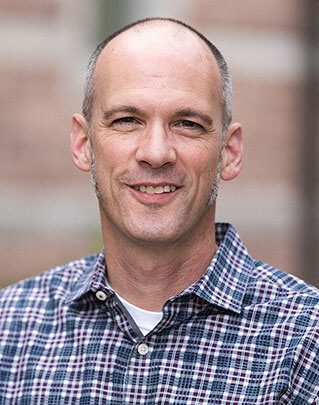
David Cunningham
Co-Investigator, historical racial violence
About David
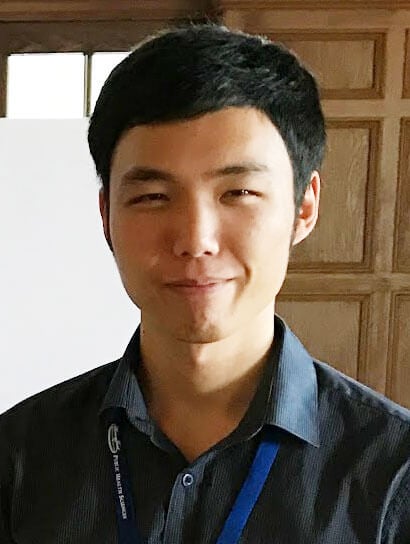
John Dou
Data Analyst
About John

Jennifer D'Souza
Data Analyst
About Jennifer
Jennifer D’Souza has been working as a data manager and research analyst with the Adar research group since 2012. She grew up in the Northeast and came to Ann Arbor for college, where she’s remained ever since – earning a BA, MPH and PhD all from the University of Michigan. She started out interested in medicine, but realized that her true calling was public health. Following graduate school, she worked in aging research before moving to her current position with the Adar group, where she feels lucky to be able to do data analysis to address important public health issues. Outside of “work”, she enjoys spending time with her husband and their 3 sons, staying active, and checking out the downtown Ann Arbor scene!
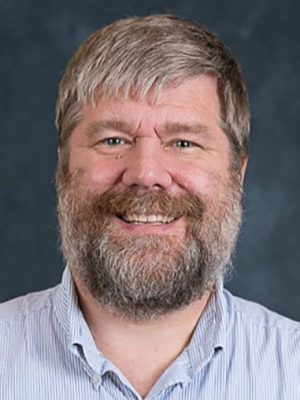
Michael Elliott
Co-Investigator, biostatistics
About Michael

Bassey Enun
Research Project Manager
About Bassey
Bassey Enun is a Research Project Manager at Emory University. She is a US-trained physician with certified training in Advanced Clinical Research Project Management(ACR-PM), Pharmacovigilance and Drug Safety (PVDS), Advanced Clinical Research Coordination (ACRC), and Advanced Clinical Research Associate(ACRA). She is passionate about providing equity and diversity in clinical research, destroying barriers to equitable healthcare, and empowering patients to take control of their health. She is dedicated to providing an environment where all are welcome to participate in clinical research regardless of race or ethnicity; gender identity; sexual orientation; disability status; socioeconomic background; age; or religion.

Mike Esposito
Co-investigator, structural racism
About Mike
Mike Esposito’s research focuses on understanding the production of racialized disparities in population health.
Dr. Esposito investigates how broad, racialized social systems – and their constituent institutions – are configured in ways that layer privileges on white populations and hazards on BIPOC populations. His research ultimately seeks to understand how these systematically-distributed privileges and penalties arrive on population health.
This work includes studies that examine how the actions of race-cognizant institutions (e.g., law enforcement agencies) contribute to health disparities; research that considers how multiple racialized systems overlap to gate access to generative health contexts; and, projects which demonstrate how structural racism enters and distorts social processes that are foundational to well-being (e.g., the association among education and health).
Dr. Esposito uses contemporary statistical methods – Bayesian and counterfactual-based mediation approaches at the moment – across his work. Esposito’s research has appeared in Proceedings of the National Academy of Sciences; American Journal of Sociology; American Journal of Public Health and more.
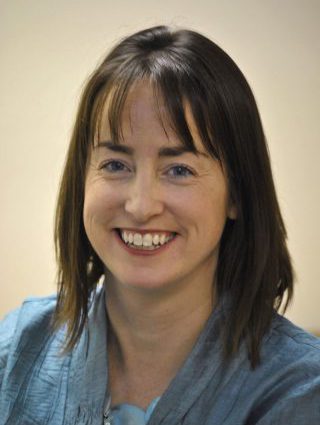
Jessica Faul
Co-investigator, biomechanisms in aging
About Jessica

Kayla Fike
Faculty Affiliate, Vanderbilt University, neighborhoods and lifecourse
About Kayla
Kayla Fike received her Ph.D. in Psychology and Women’s and Gender Studies at the University of Michigan and is an incoming Assistant Professor in Human and Organizational Development at Vanderbilt University. She examines how young Black and Brown people navigate and respond to legacies of racialized and classed inequity in urban communities, such as community violence, racial discrimination, and public disinvestment in neighborhoods. Her research program highlights ways that young people of color navigate interpersonal and systemic manifestations of discrimination and rely on their resources and skills to come to thrive. In her newest line of research, she examines potential contributing factors to urban-residing young Black adults’ ratings of the quality of their neighborhoods with specific attention to the role of gender. She is committed to breaking down the divide between academia and minoritized communities by developing community-university partnerships and using participatory action methodology in the future. Last but certainly not least, she is a proud Michigan native, born and raised in Detroit and Pontiac, Michigan.

Victoria Fisher
Consulting Affiliate, social epidemiology
About Victoria
Victoria is an epidemiologist and project manager with Dr. Nadia Abuelezam’s “Prioritizing Roots of Oppression Within Epidemiology Systems Science” (PROWESS) research group at Boston College. She received her MPH from the University of Michigan, working with Drs. Bakulski and Hicken to investigate residential segregation and epigenetic aging.

Raynesha Franklin
Senior Research Interviewer
About Raynesha
Raynesha Franklin is a Senior Research Interviewer for the ARISE Study at Emory University. She currently holds a master’s degree in physician assistant studies and clinical research from Morehouse School of Medicine. Her interest includes sleep medicine and continuing to promote health equity in her community. In her free time, Raynesha enjoys traveling, watching football or basketball games, and spending time with her family and friends.

Jiaqi Gao
Graduate Student, air pollution and health
About Jiaqi
Jiaqi Gao is a first-year Ph.D. student in the department of epidemiology. She received her MPH in epidemiology degree at the University of Michigan, School of Public Health. Her primary research interests lie in exploring the risk factor of environmental air pollution on various outcomes.

Iris Gomez-Lopez
Data Scientist, complex data structures
About Iris

Jamie Guyot
Study Coordinator, Vigilance and Sleep Study
About Jamie
Jamie Guyot received her B.S. in Brain, Behavior & Cognitive Sciences from the University of Michigan and her M.S.A. in Public Administration from Central Michigan University.
She currently oversees projects and staff within the ABI program. Her primary responsibilities are administrative oversight of study staff and working with the staff on study recruitment and data collection. She assists the director with grant budgeting, proposals and data presentations. She has worked in research at the University of Michigan for 14 years, all in the medical school until she came to ISR in June 2022.

Karis Hawkins
Undergraduate Student
About Karis
Karis Hawkins is an undergraduate student in the School of Public Health on the Bachelor of Science track majoring in Public Health Sciences. She is interested in social epidemiology and research related to the intersection of race and health specifically for Black Americans. In her spare time, she enjoys cooking and trying out new recipes. Her specialty is baking. Post undergraduate studies, she plans to pursue a MPH in epidemiology.
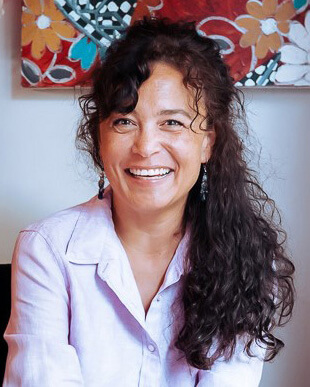
Margaret T. Hicken
Principal Investigator, structural racism and health
About Margaret

Nia Holland
Graduate Student, racial health disparities
About Nia
Nia Holland is a graduate student in the Combined Program in Education and Psychology and the Program in Survey and Data Science at the University of Michigan. Her research interests include the racialized imposter phenomenon, Black student achievement, in addition to health and educational disparities within the Black community and research related to the intersection of race and health specifically for Black Americans. Some of her hobbies include reading, spending time with friends and family, as well as walking with her dog, Chase.

Dayna A. Johnson
Co-investigator, sleep and health
About Dayna
Dr. Dayna A. Johnson, PhD, MPH, MSW, MS is a sleep epidemiologist and Assistant Professor in the Department of Epidemiology at the Rollins School of Public Health, Emory University in Atlanta GA. She also holds an academic appointment in the Gangarosa Department of Environmental Health at Emory. Dr. Johnson received her Bachelor of Arts degree in Psychological Sciences at Purdue University in 2004. She then attended the University of Michigan for graduate school and received a Master of Public Health and Master of Social Work in 2007. Upon graduation, she worked in Public Health research, and developed a passion for epidemiology. A few years later, she returned to graduate school to further refine her skills in research and completed a Master of Science as well as doctorate degree in Epidemiologic Science from the University of Michigan. Following graduation, she pursued and completed a postdoctoral fellowship in Sleep and Circadian Disorders at Harvard Medical School and Brigham and Women’s Hospital in Boston MA. Dr. Johnson’s research is aimed at understanding the root causes of sleep health disparities and their impact on health outcomes by 1) addressing the social and environmental determinants of sleep disorders and insufficient sleep; and 2) investigating the influence of modifiable factors such as sleep disorders and disturbances on disparities in health outcomes (e.g., hypertension, diabetes, metabolic syndrome, cancer, cognition). She is funded by the National Institutes of Health to investigate associations of contextual factors and psychosocial stress on sleep and blood pressure among African American adults. Her other research projects include a mindfulness-based stress reduction intervention to improve sleep and cardiovascular health and a study of sleep among high school students in rural Georgia. She utilizes large epidemiologic studies such as the Jackson Heart Study and the Multi-Ethnic Study of Atherosclerosis to conduct her research. Dr. Johnson is also engaged in community partnerships to investigate the effect of environmental exposures and housing on health among residents of Georgia. She has been featured in several magazines, podcasts and news programs including CBS for her expertise in sleep health and sleep disorders. Her mission is to increase awareness around the importance of sleep.

Ruiling Kang
Graduate Student, Survey and Data Science Program
About Ruiling
Ruiling Kang is a first-year student pursuing an MS degree in Survey and Data Science. She came from Tibet and received her bachelor’s degree in engineering of electronic commerce in Beijing. Her research interests lie in combining data science with other academic fields, such as business or society.
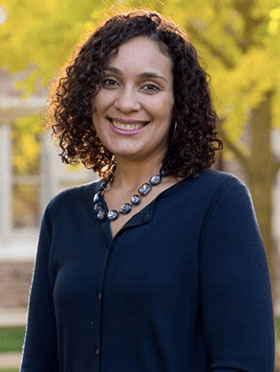
Hedy Lee
Co-Investigator, structural racism and health
About Hedy
Hedwig (Hedy) Lee is broadly interested in the social determinants and consequences of population health and health disparities, with a particular focus on race/ethnicity, poverty, race-related stress, and the family.
Hedy received her PhD in Sociology from the University of North Carolina at Chapel Hill in 2009. After receiving her PhD, she was a Robert Wood Johnson Foundation Health & Society Scholar at the University of Michigan from 2009 to 2011. She holds a courtesy joint appointment at the George Warren Brown School of Social Work at WUSTL and is a Faculty Affiliate in the Department of Women, Gender, and Sexuality Studies. She is also an Associate Director of the Center for Race, Ethnicity & Equity. She currently serves on the research advisory board for the Vera Institute of Justice and the board for the Interdisciplinary Association for Population Health Science. She is also a member of The National Academies of Sciences, Engineering, and Medicine, Division of Behavioral and Social Sciences and Education, Committee on Population. Her recent work examines the impact of structurally rooted chronic stressors, such as mass incarceration, on health and health disparities.

Courtney L. McCluney
Consulting Affiliate, organizational psychology
About Courtney
Dr. Courtney L. McCluney (she/her) is an award winning educator, researcher, consultant, and advisor reimagining ways to foster equity and wellness in the workplace. Trained as a social scientist, Dr. McCluney has received several grants and recognition for her work on racial equity and inclusion including groundbreaking research on the emotional tax and racial codeswitching as factors that affect Black workers’ well-being and success. Her work is featured in several peer reviewed academic publications and she is a contributing writer to Forbes and the Harvard Business Review. Dr. McCluney is an assistant professor in the ILR School at Cornell University. She completed a postdoctoral fellowship in the Darden School of Business at the University of Virginia, earned her PhD in Psychology at the University of Michigan and BA in Psychology and Interpersonal/Organizational Communications at the University of North Carolina at Chapel Hill. She is a former Research Fellow at Catalyst, Inc. and previously served as an AmeriCorps Social Impact Fellow. Dr. McCluney aims to disrupt organizational processes and norms that maintain systemic inequities in society. Learn more about her work at her website.

Helen C. S. Meier
Co-Investigator, redlining and health
About Helen
Helen Meier is an Assistant Research Scientist in the Population, Neurodevelopment, and Genetics Program at the University of Michigan’s Institute for Social Research. Broadly, her research examines how social vulnerabilities become biological vulnerabilities resulting in health disparities. She is an epidemiologist and uses a life course framework to understand the molecular pathways by which social and environmental exposures occurring throughout life get “under the skin” to affect adult and later life health. Dr. Meier is specifically interested in the biology of immune aging and immunological dysfunction as key factors in the aging process. Dr. Meier investigates health and health inequities using a multi-level biosocial approach ranging from biomarkers to structural drivers.

Colter Mitchell
Faculty Affiliate, University of Michigan, social genomics
About Colter
Colter Mitchell’s research utilizes a range of biological data types such as epigenetics, neuroimaging, and genetics to better understand how social conditions shape population health. In particular his work uses these biomarkers to elucidate pathways by which social inequalities cause health inequalities. This research uses longitudinal population-based studies where biological data are collected at multiple timepoints. His research also includes the development of new methods for integrating the collection and analysis of biological and social data.
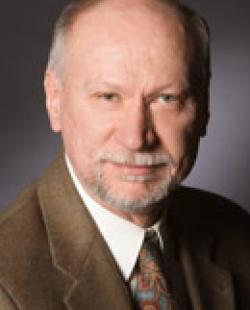
Paul Mohai
Co-Investigator, environmental justice
About Paul
Paul Mohai’s teaching and research interests are focused on environmental justice, public opinion and the environment, and influences on environmental policy making. He is a founder of the Environmental Justice Program at the University of Michigan and a major contributor to the growing body of quantitative research examining disproportionate environmental burdens and their impacts on low income and people of color communities. In 1990, he co-organized with Dr. Bunyan Bryant the “Michigan Conference on Race and the Incidence of Environmental Hazards”, which was credited by the U.S. Environmental Protection Agency as one of two events bringing the issue of Environmental Justice to the attention of the Agency. He is author or co-author of numerous articles, books, and reports focused on race and the environment, including “Environmental Racism: Reviewing the Evidence”, “Race and the Incidence of Environmental Hazards”, “Toxic Waste and Race at Twenty”, and “Which Came First, People or Pollution?”. His current research involves national level studies examining the causes of environmental disparities and the role environmental factors play in accounting for racial and socioeconomic disparities in health. Through a grant from the Kresge Foundation, he is also examining pollution burdens around public schools and the links between such burdens and student performance and health.
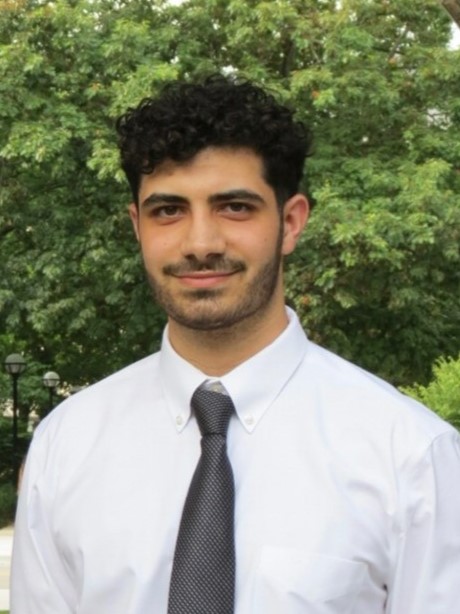
Neil J. Nakkash
Undergraduate Student
About Neil
Neil J. Nakkash works as a research assistant for Dr. Margaret Hicken’s WorkLife Study. As an undergraduate student at the Gerald R. Ford School of Public Policy, his academic focus lies in Middle Eastern Policy Studies. He is interested in the influence of policies on public health, both at the national and global levels. During his free time, Neil enjoys writing book reviews on Goodreads, exploring nature, and participating in his local Iraqi-American community. He aspires to pursue a career in research and medicine.
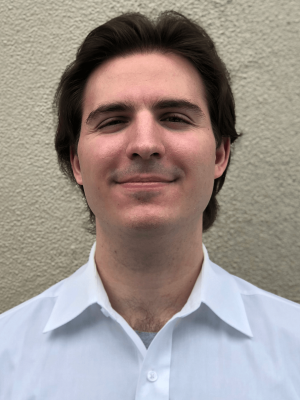
Konstantinos Papaefthymiou
Data Manager
About Konstantinos
Konstantinos Papaefthymiou joined Social Environment and Health as a data project manager, having worked as a data curator at ICPSR and a research affiliate at USC CREATE prior. He holds a Master’s in Public Policy from the University of Southern California and has contributed to research on topics including disaster resilience and environmental economics.

Devon Payne-Sturges
Faculty Affiliate, University of Maryland, environmental racism
About Devon
Devon Payne-Sturges is an Associate Professor with the Maryland Institute for Applied Environmental Health at the University of Maryland, School of Public Health. She also holds a joint appointment in the Department of Epidemiology and Biostatistics. Prior to joining the faculty at the University of Maryland, Payne-Sturges served as Assistant Commissioner for Environmental Health with the Baltimore City Health Department then later as the Assistant Center Director for Human Health with U.S. EPA’s National Center for Environmental Research where she focused on biomonitoring for policy analysis, cumulative risk assessment, health impact assessment, environmental health indicator development, children’s environmental health and environmental health of minority populations. She has worked with numerous stakeholders, including relevant state and federal agencies and NGOs in the fields of environmental and occupational health. Her research focuses on racial and economic disparities in exposures to environmental contaminants and associated health risks with the aim of improving the science our society uses to make decisions about environmental policies that impact the health of communities and populations, especially vulnerable, low income and minority populations. She is currently conducting research applying systems modeling to better understand the links between structural racism and cumulative environmental exposures under a K01 award from NIEHS. Payne-Sturges earned her MPH and Doctor of Public Health degrees in environmental health sciences from Johns Hopkins Bloomberg School of Public Health.

Catherine Persad
Administrative Staff
About Catherine
Catherine Persad is joining the team as an administrative assistant intermediate. She comes from the Office of the Provost where she served as an executive assistant and project assistant to the Vice Provost for Engaged Learning Team. Before joining the University, Catherine was an elementary teacher and taught Kindergarten-3rd grade. Catherine has a masters of arts in education from as well as a bachelors of science in movement science from the University of Michigan. In her spare time she enjoys taking walks with her australian shepherd, Dani, baking, and playing sports!

Rich Puchalsky
Data Curator, RSEI
About Rich
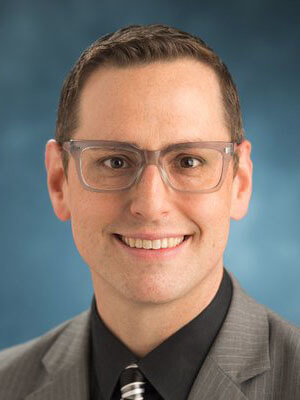
Nicholas Prieur
Research Administration
About Nicholas
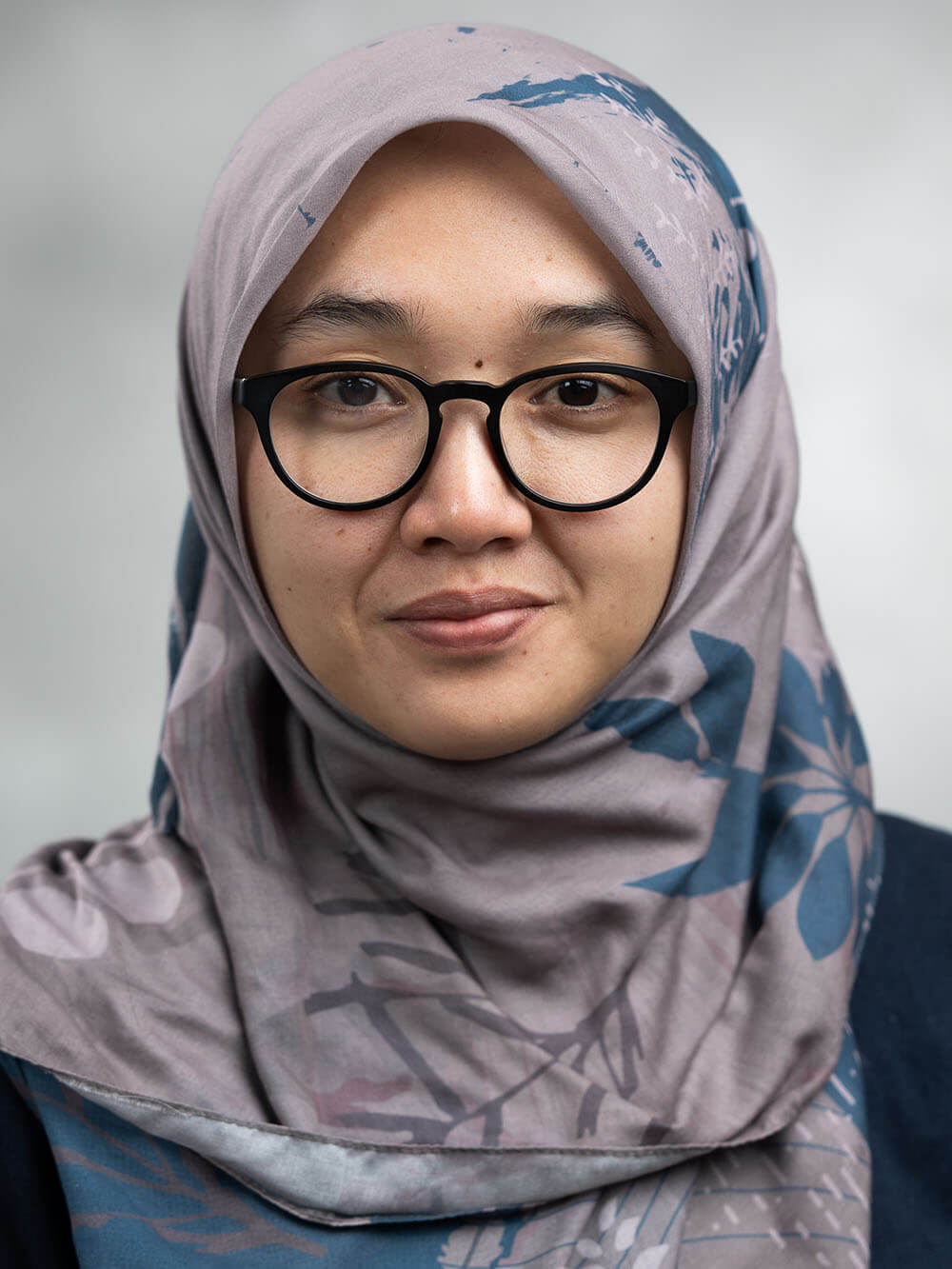
Aulia Dini Rafsanjani
Graduate Student, Survey and Data Science Program
About Aulia
Aulia Dini is a master’s student in the Survey and Data Science program. She has a bachelor’s degree in statistics and has experience working on the agricultural survey and Sustainable Development Goals (SDGs) for six years. In the Landscapes of Structural Racism and Health projects, she works on programming and testing survey instruments using Qualtrics.
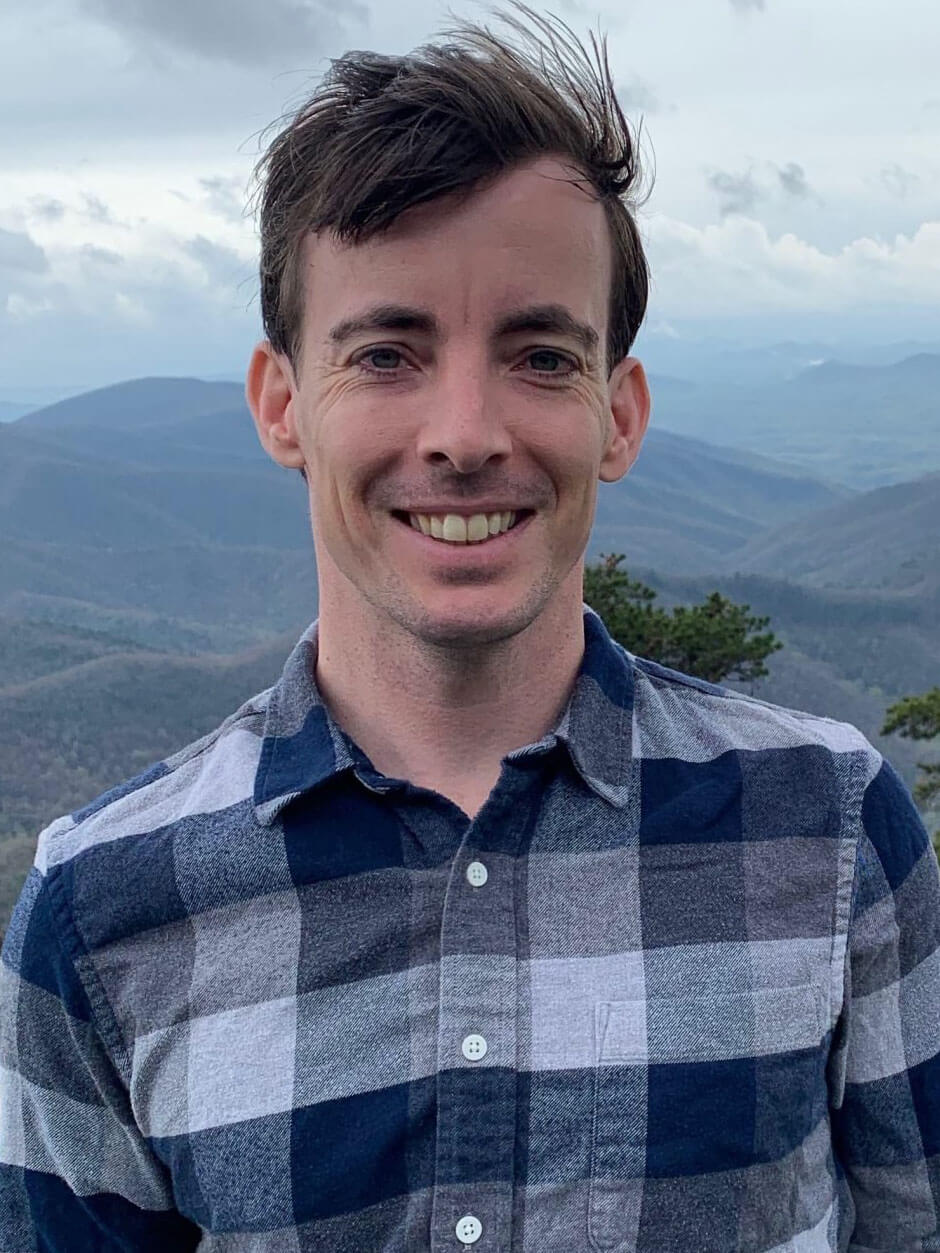
David Rigby
Post-Doctoral Fellow, historical racial violence
About David
David Rigby is a Postdoctoral Associate in the sociology department at Duke University. David’s research interests focus on understanding processes of racialization, the ways that social dynamics and institutions come to be informed by ideas about race, and the pathways through which historical forms of racial violence and social control shape institutions and cultures, impacting the contemporary distribution of risk, resources, and opportunity. David’s work uses quantitative, archival, spatial, and computational methods to gather data on historical forms of racial violence and control, to investigate the historical development of structural racism, and to understand how the racialization of local institutions patterns exposure to social and environmental stressors that aggregate into racial health disparities. David’s current projects include collaborations using varying archival, survey, and trace data sources to analyze how the historical and place-based racialization of legal and conventional practices and institutions continue to impact the organization of and access to public space, development of local labor markets, and health trajectories.

Marie-Anne S. Rosemberg
Co-Investigator, workplace and health
About Marie-Anne
Dr. Rosemberg is an assistant professor at the University of Michigan, School of Nursing in the Systems, Populations, and Leadership Department. Her program of research focuses on addressing occupational health disparities among youth and adult working populations at risk for or experiencing one or multiple chronic conditions. She aims to mitigate socioecological stressors and remediate the associated pathophysiologic and maladaptive behavioral responses, and tertiary outcomes among vulnerable workers. Dr. Rosemberg earned her masters degree in Communities and Populations health at the University of Washington Tacoma. She earned her PhD with a specialty focus on occupational and environmental health as a fellow of the Centers for Disease Control (CDC)-National Institute for Occupational Safety and Health (NIOSH). Dr. Rosemberg completed her postdoctoral training as a T32 follow of the National Institutes of Health (NIH) at the University of Michigan. Her work thus far has focused on workers in service industries (including hospitality, nail salon, and home care) who face particular challenges given that they are overrepresented by women, ethnic/minorities, and immigrants. In addition to her research, Dr. Rosemberg serves on the CDC-NIOSH Healthy Work Design and Well-Being Cross-Sector Service Council, and is currently chair of the Chronic Conditions objective for the phase two of the Healthy Work Design Council for the National Occupational Research Agenda (NORA).
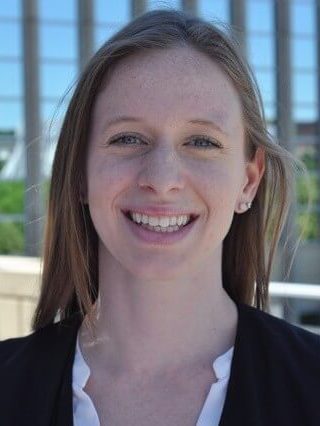
Sarah Sernaker
Data Analyst
About Sarah

Kerby Shedden
Co-Investigator, complex data structures
About Kerby

Huaman Sun
Graduate Student
About Huaman

Dominique Sylvers
Graduate Student
About Dominique
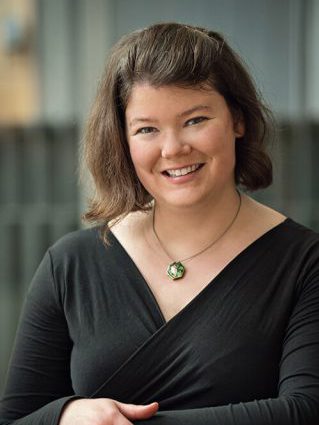
Mary Wessel Walker
Project Coordinator, Landscapes Research Program
About Mary

Chris Wildeman
Co-Investigator, racial control and health
About Chris
Chris Wildeman is Professor of Sociology in the Trinity College of Arts & Sciences at Duke University, where he is also Director of the National Data Archive on Child Abuse and Neglect (NDACAN), hosted by Cornell University and Duke University. Since 2019, he has also been Professor at the ROCKWOOL Foundation Research Unit in Copenhagen, Denmark.
Prior to joining Duke’s faculty in 2020, Wildeman was Professor of Policy Analysis and Management (PAM) and Sociology (by courtesy), Director of the Bronfenbrenner Center for Translational Research (BCTR), and Associate Vice Provost for the Social Sciences at Cornell University. Prior to that, he was Associate Professor of Sociology at Yale University. He received his Ph.D. in Sociology and Demography from Princeton University in 2008 and his postdoctoral training from 2008 to 2010 as a Robert Wood Johnson Foundation Health & Society Scholar at the University of Michigan.

Jenny Zhao
Undergraduate Student
About Jenny
Jenny Zhao is a Junior pursuing a dual degree in Business Administration and Biopsych, Cognit, and Neuroscience. She is interested in healthcare strategy and cognitive neurological research with a focus on neuropharmacology and stress variables on emotional regulation. In her leisure time, she likes to bake and travel.
